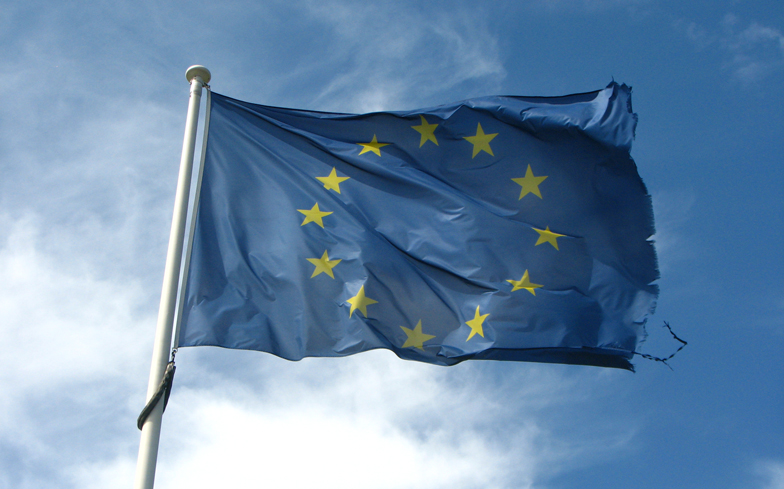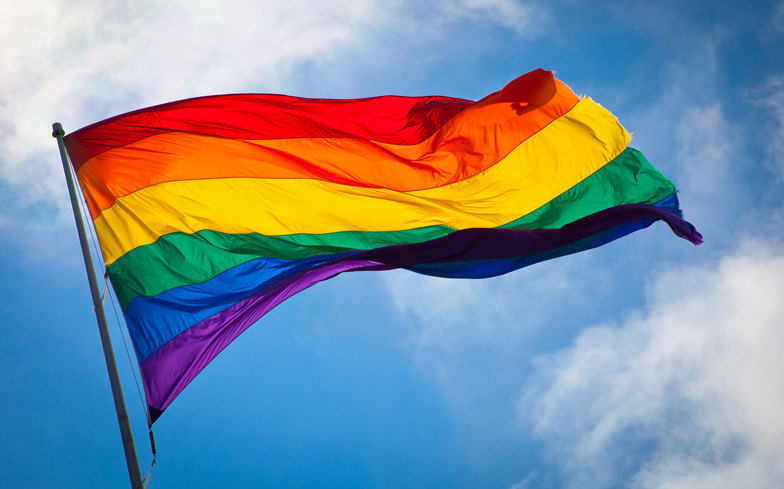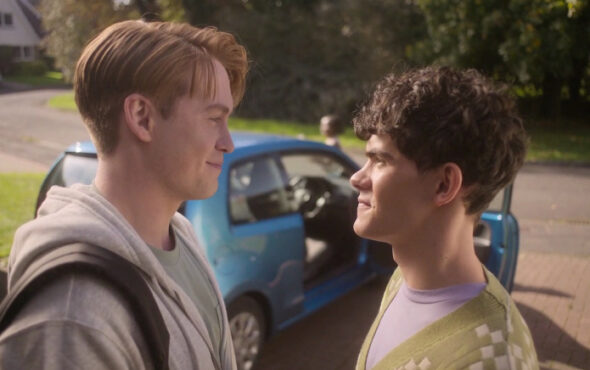How will the controversial decision to leave the European Union affect gay rights – if at all?
There are astronomical challenges ahead for Britain, as our great – and greatly unpredictable – country prepares to come out of the EU. Of course, no one knows better than gay men just how difficult coming out can be. Equally, we know this; dragging it out is not always the best option. But it seems triggering Article 50, like that awkward chat with the parents, is something that can be quite easily put off.
Coming-out-of-the-closet analogies aside, just how will Brexit, when it is finally implemented, affect the LGBTQ community? We, like most of the country, perhaps struggled to find the real answer to our questions in the midst of an explosive campaign – from both sides of the argument – that was laden with messy lies, messy threats and – perhaps worst of all – Boris Johnson’s unruly hair. But one thing consistently crystal clear was that we, as gay people, found ourselves expected more than perhaps any other group to fall in line – and vote not to come out. Was there any real reason that our views should be swayed in a different direction to those of our heterosexual counterparts? Does being gay automatically mean you should be more politically liberal?
It certainly felt that way. We were told our civil rights, that we’ve spent more than 60 years fighting for, would be at risk if the country made the unexpected decision to leave the European Union – an institution that was formed on the back of a war that saw thousands of gay people murdered in Nazi concentration camps, lest we forget. Among liberties said to be at risk, the most prominent was the Equality Act, which was introduced in 2010, guaranteeing equal treatment in employment as well as in private and public sectors. Surely these rights are ones that should never be taken for granted, and even the possibility of losing them would be cancerous to our growth. But is the threat of losing them really something that could happen? Is any of it true?
Our out-and-proud celebrities and politicians seemed to think so. Music icon Sir Elton John, outspoken as ever, made a public case to remain in the EU, urging fans to “build bridges not walls,” as did actor Sir Ian McKellen and Years and Years frontman Olly Alexander, during the high profile campaign.
Similarly, Jonathan Cooper, the UK’s leading expert on international LGBT human rights law, issued a stark warning of what we had to lose as gay people, immigration and the economy aside. “Once we’re out of the EU we lose the EU laws and regulations which underpin the Equality Act,” he said.
“And once you’ve lost that underpinning, who’s to stop the regulations being tinkered with? You could see challenges to the Equality Act happening and a situation where things are bleak because ultimately we get our equality through the EU and the single market.
“Decriminalisation, access to the armed forces, the equal age of consent, gross indecency– all of those changes came about because of decisions of either the Strasbourg or Luxembourg courts.”
So, now that the seemingly unthinkable has happened, should we be worried? In recent years we’ve celebrated being able to call marriage exactly that, marriage, rather than the political consolation prize of civil partnership, and have somehow seen our civil liberties triumph in ways people would never have dared dream only half a century ago – and all under a Tory government, of all things. Sometimes when you really think about it, it feels like a dream, doesn’t it? But could Brexit be our wake-up call?
William Wragg, MP for Hazel Grove William Wragg, questioned claims made by the likes of Cooper.
He argued: “It is frequently claimed by many that the EU is some great promoter of LGBT rights and a force for progressiveness, but these claims rarely stand up to scrutiny. It is a complete myth that these rights have come from the European Union.
“Whilst it is true that homosexual acts are legal in all 28 EU member states, this is really more of a coincidence than due to any positive steps taken by the EU.
“In its history the EU has never issued an edict to decriminalise same-sex activities, member states each did so voluntarily and individually.
“When LGBT rights are examined across the EU, a complete smorgasbord of different levels of freedoms and rights is found.”
Crispin Blunt, the former chairman of Foreign Affairs Select Committee and MP for Reigate, backs this up, and has faith that the progress the United Kingdom has made could never be easily undermined by not being in the EU.
“LGBTQ rights are now hardwired into the British political establishment,” he argued.
“Britain isn’t going soft on these rights hard won over 60 years, in or out of the EU, or the ECHR, for that matter. Britain is going to continue to be one of the world’s leading proponents of LGBTQ rights.”
Indeed, it seems generous to give the EU credit for progress such as same-sex marriage, when only 12 of the current 28 Members share those legal rights. In fact, seven countries actually ban same-sex marriage in their constitutions, six do not recognise civil partnership and gay adoption is legal in only 13 EU states.
There might be a separate argument to be had about whether the UK should have remained in the EU to aid progress in these countries whose LBGT communities still face inequality, of course. As Ian McKellen argued, “If you’re a gay person, you’re an internationalist,” when he urged the UK to vote Remain and give back that sense of empowerment to countries in the EU that he described as still “backward” in that regard.
Unfortunately for Sir Ian, who famously played wizard Gandalf the Great in Lord of the Rings, he couldn’t work his magic on the referendum, and that ship has safely sailed. As new Prime Minister Theresa May has made abundantly clear, Brexit means Brexit, and no amount of petitions or protests will change a thing, with even Labour leader Jeremy Corbyn ruling out the possibility of an anti-democratic second referendum to try and get the result so many British people feel cheated out of.
But it appears unjust that the EU gets to be branded an institution that cultivated change and progress for gay rights when so many of its states still don’t enjoy them.
However, it would also be foolish to assume anything is safe right now. With the Labour party crumbling like a failed Bake Off pastry, a Prime Minister who once voted against same-sex adoption and equaling the age of consent for gay men (before later softening on gay rights, admittedly), not to mention the UKIP party, which won a staggering 3.9 million votes in the last election, can we really afford to become complacent?
It’s easy to feel like the loss of some of our hard-earned gay rights is something that would never actually happen, in reality. But isn’t that what British people, both Remain and Leave voters alike, thought about Brexiting the EU? Regardless of views, did people ever think it was really going to happen? Did people really think Nigel Farage would ever have success? This is Brexit Britain, don’t forget. The truth is, like everything since June 24, nothing is certain.
We can speculate all we want, but we won’t know how Brexit truly affects our rights until we’re well-and-truly out. Looking at the evidence though, a step backwards in our future looks, fortunately, unlikely. And I for one would like to believe we’ve come too far to allow that to happen. Brexit or no Brexit.
Gay Times speaks to two opinionated men on the matter, one who is pleased we’re exiting the EU and doesn’t think that it will affect gay rights, and one who fears it might.
“Oh my God, you voted out? You moron, you un-educated idiot. What have you done??”
Yes. Those were some of the warm comments I received from ‘Facebook friends’ the day the UK finally pulled out of the EU.
Well, I’ve never been one to pull out early… but after 40 years of inept bureaucracy and money making pen pushing – which quite frankly I think has got us nowhere – I thought it was time to shake things up a bit and for Great Britain to stand alone in the world again.
I mean, let’s face it. Britain has always led the world in the development of LGBTQ rights, which started with the decriminalisation of homosexuality in the UK in 1967.
We are allowed to marry whoever we love, make a family, and are protected from discrimination in society and at work. This is something our country can be proud of.
It’s wrong to believe these rights originated in Europe, where many countries constitutionally ban same-sex marriage, have forced sterilisation for those who wish to change gender, and even ban LGBTQ people from serving in the military.
So here we are, we are finally ‘out’ and the likes of David Beckham and Daniel Craig – who begged us all to vote Remain as we packed our pencils and went to the polls – have been nowhere to be seen since that fateful day. No, they are back probably somewhere in LA trotting their wares.
And will Europe miss us? Probably not.
So, yes. I voted ‘Out’ and I’m proud. Do have I any regrets?
No. I mean you only have to look at Eurovision to see what the rest of Europe really thinks of us.
MARC BAKER.
Journalist, London.
What the Brexit vote does prove – I believe – is that people are not as open when it comes to those outside of the heteronormative, white population as many of those in the community may think.
Nigel Farage’s previous attacks on people with HIV – claiming foreigners were coming here for treatment – show that while we may be affronted, plenty of people side with him and UKIP’s policies generally.
We should always remember that 1930s Berlin was a hugely progressive place for gay men until the Nazis came in and, along with many other ‘undesirables’ including Jews, the disabled and Poles, ended up in concentration camps across Europe.
Gay rights have been hard fought for, and backed up by the European Court of Human Rights, we have found ourselves treated freely and equally with everything from marriage to work and adoption.
If we rest on our laurels following the Brexit vote, we could find any leader come in following our extrapolation from the EU and decide to roll back whatever they liked, with the backing of parliament (should it get really bad).
We must continue to fight against the likes of UKIP – who expelled one of their own members, Suzanne Evans, for rallying against homophobia – who have been thoroughly legitimised following the vote.
Go to your gay bars, be visible, and never, ever, accept homophobia of any sort, especially as we slowly but surely look towards a future outside of the European Union.
STEPHEN LENG.
Writer, London.





